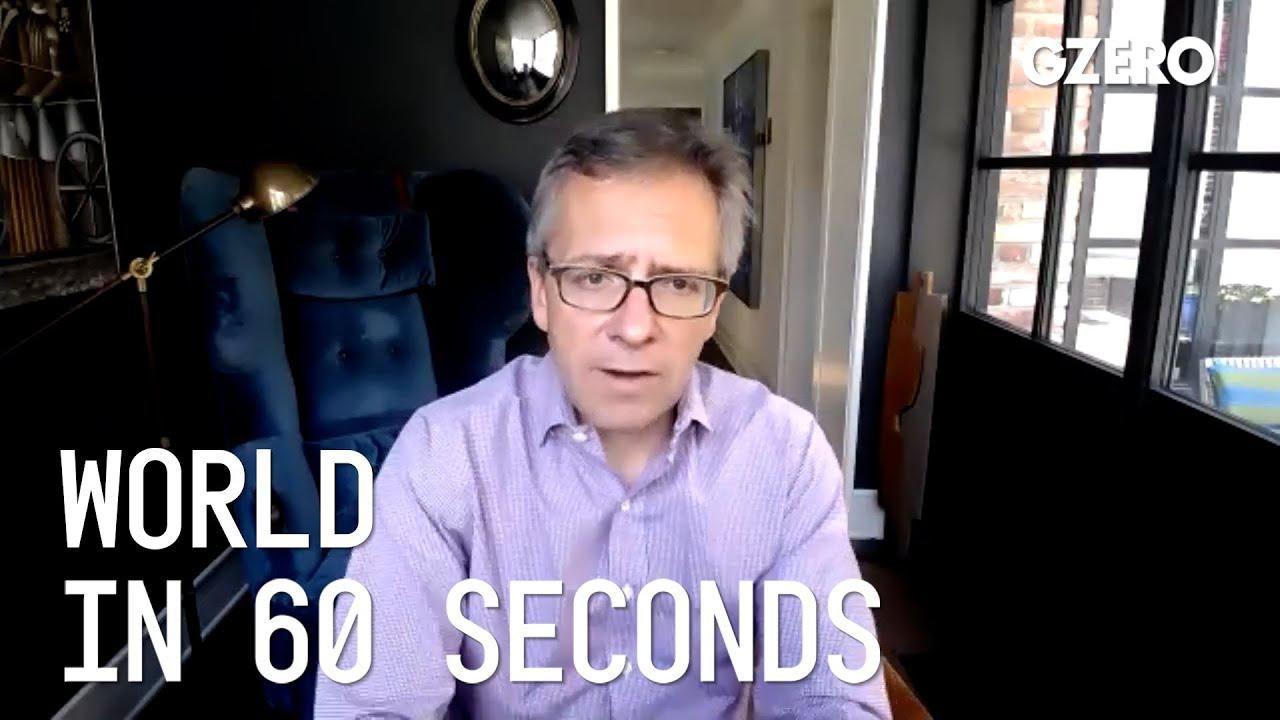Ian Bremmer shares his perspective on global politics this week:
What topics will be in focus at the G7 summit?
Well, most importantly is the collective response to coronavirus. 1 billion vaccines, repurposed, and tens of billions of dollars in financing from the G7 to lower income economies around the world. It is by far the most significant show of leadership displayed since the pandemic started and it's coming from the United States and its allies. That is meaningful, especially given the direction that the world has been heading, this G-Zero world over the course of the past decades. It's nice to see. Lots of other issues being discussed. It's only 60 seconds. I can't go that far.
What do you make of the EU joining the US in a push to investigate the origins of coronavirus?
Sure you don't want to go back to the G7? It's a much happier conversation. It means that the US-China relationship is getting more challenging. It means that the Chinese are going to be incredibly defensive about the fact that they have not provided access to the international community to investigate the origins of coronavirus. There are other countries around the world that are increasingly concerned about it. And if this becomes a really big flap, it is possible that we could start to see more formal Chinese decoupling from the West around issues of healthcare and epidemiology. I could imagine even the Chinese government leaving the World Health Organization, which would be very significant since that's where lots of the necessary transparency really is absent for the rest of the world. Anyway, we watch this space.
With Biden and Putin to meet next week, in Geneva, what does each want from the summit?
Biden's made very clear, he said it himself, and so has Jake Sullivan and Tony Blinken, they want a more predictable relationship between the US and Russia. In other words, the status quo is not great, but they'd like it to persist. That's the baseline. They don't want it to get worse. They don't want sudden crises, whether it's on hacking, whether it's around Belarus, whether it's around issues of human rights, they don't want to rock the boat unnecessarily when the US-China relationship is considered to be by far the top priority, the biggest challenge. In the case of the Russians, he wants to be treated with more respect and he's unhappy with the status quo. He thinks that the West needs to be more divided, both internally and as a transatlantic relationship. Hard to see a lot being accomplished between the two leaders. But I do think if it surprises, the meeting will surprise on the upside. We'll watch next week.
- How will we deal with the next pandemic? - GZERO Media ›
- US-Russia: An all-or-nothing approach leaves US with nothing ... ›
- Who would Putin vote for? - GZERO Media ›
- Putin may never congratulate Biden; humanitarian disaster in ... ›
- Expect Biden's first European trip to drive concrete steps with G7, EU - GZERO Media ›
- Expect Biden's first European trip to drive concrete steps with G7, EU - GZERO Media ›
- The small aims of the big Putin-Biden summit - GZERO Media ›
- What to expect from Biden-Putin summit; Israel-Hamas tenuous ceasefire holds - GZERO Media ›
- Joe Biden is top Russia skeptic in Oval Office since Cold War - GZERO Media ›
- Joe Biden, Russia skeptic - GZERO Media ›
- Why Joe Biden, Russia skeptic, wants to work with Russia - GZERO Media ›
- European allies see Biden's visit as a strong beginning - GZERO Media ›
More For You
Microsoft unveiled a new set of commitments guiding its community‑first approach to AI infrastructure development. The strategy focuses on energy affordability, water efficiency, job creation, local investment, and AI‑driven skilling. As demand for digital infrastructure accelerates, the company is pushing a new model for responsible datacenter growth — one built on sustainability, economic mobility, and long‑term partnership with the communities that host it. The move signals how AI infrastructure is reshaping local economies and what people expect from the tech shaping their future. Read the full blog here.
Most Popular
On GZERO World, Finnish President Alexander Stubb says that Ukraine and its NATO allies are aligned on a path to a ceasefire but warns that Vladimir Putin will drag out the war, not because he thinks he’ll win… but because he knows he’ll lose.
At the 2026 World Economic Forum in Davos, GZERO’s Tony Maciulis spoke with Ariel Ekblaw, Founder of the Aurelia Institute, about how scaling up infrastructure in space could unlock transformative breakthroughs on Earth.
Who decides the boundaries for artificial intelligence, and how do governments ensure public trust? Speaking at the 2026 World Economic Forum in Davos, Arancha González Laya, Dean of the Paris School of International Affairs and former Foreign Minister of Spain, emphasized the importance of clear regulations to maintain trust in technology.
